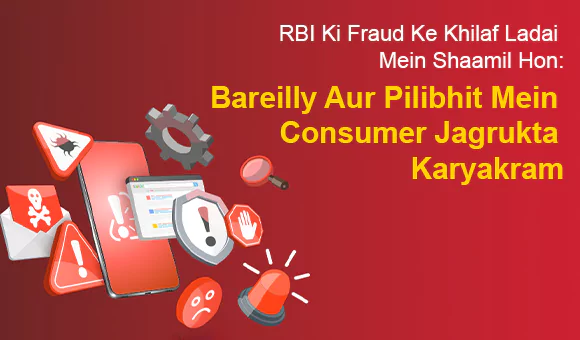5 Financial Lessons to Master by Age 30
Many lessons learned can be financially draining, take them all seriously to take critical financial decisions that may be skipped otherwise.
It has been proved in the past that the way you handle your money today will determine your future financial strategy. So, if you’re reckless about your money now, you will continue to remain in the future above the 30s.
In the contrast, if people practice money management from the beginning it will stay in the long run.
How to initiate long term financial planning?
Enabling yourself with information to build a newer chart for financial planning in the future scenario. Whether you’re self-employed, salaried or unemployed, it’s important to have knowledge of the money management principles (budgeting & saving).
Below are the best 5 financial lessons to learn before turning 30:
1. Save money to earn as much: Build a proper budget to save as much as you can. A budget helps to track your spending monthly and utilize the same. Everyone needs to set up a budget and stick by it. A budget is a great help to manage your finances which will help to identify wasteful expenditure on unnecessary stuff.
2. Fix financial goals and adhere to them: It’s a common perception amongst
youngsters that financial goals can be achieved only when you have a stable job and a defined set of
responsibilities. Whereas, it’s important to set up financial goals as soon as you realize the essence of
it.
Whether you’re working in a permanent or temporary position, it’s important to take note of
the money you have and use it in the right way. It’s never too early to start saving and learn simple money
management skills.
3. Don’t mess with debt. At any point in time, you will need credit to buy
high-value items like a house, car, etc. This may push you to get in touch with a lender for better financing.
It’s not recommended to take loans to match your lifestyle aspirations, looking at your peers. So instead
of buying items that you do not need like a fancy house, car, it’s best to choose simplicity.
This one
is counted as a great effort to save for an owned premise. Just because a friend owns a better-looking house or car
doesn’t qualify you to spend the same.
Understand
your finances better & do not be challenged by other lifestyles.
4. Preserve your savings: Saving your income must be in sync with strict timelines. Chart out your needs and stay glued to it. Let’s suppose if you have kept money aside for emergencies, then ensure you stay careful about your spending. Do not move away from your commitments due to transient changes in the situations.
5. Validate your financial status: You maybe have a good base of savings however its
relevant to make rational financial decisions. Reckless decisions will ruin your future plans, in addition, take
into account important factors like interest rates, etc.
Put young children into money management skills and
financial literacy. A financially potential individual can take logical decisions to suit their needs well. So, stay
equipped with relevant information, knowledge, and skills.
Related Topics

- Financial Literacy
Can’t find a guarantor for a loan? Here’s what your option
If we talk about a classic example, we should be able to go to the bank, submit our paperwork, and receive approval from them almost immediately – without any other detours.

- Financial Literacy
Aadhaar Virtual ID – How Safe is it?
You will now be using your Aadhaar virtual ID or VID similarly as you utilize your Aadhaar card details when it comes to banking operations, telecom organizations and so on.

- Financial Literacy
Credit Score – Facts & Myths
A credit score is a significant number for the lenders and borrowers, both. Along with the credit score, the credit report helps substantially o estimate the borrowing capacity of the prospects now and later.

- Financial Literacy
Reasons Why Instant Loans Help You Overcome Emergency Situations
Life is unpredictable; you never know what it may have in store for you.

- Financial Literacy
Why Are There Different Types Of Credit Scores?
The borrower’s credit history and trustworthiness become important criteria that help lenders decide whether to provide him or her with a loan or not when it comes to obtaining a collateral-free loan, whether it be a small business loan or a personal loan.

- Financial Literacy
Aadhaar Virtual ID And its Benefits
Considering the protection of the individual information including the statistic and biometric data specified on the Aadhaar card, UIDAI has of late chosen to think of one of a kind element, named as Virtual Aadhaar ID.

- Financial Literacy
Virtual ID in the Real World
Have you heard about Virtual ID? UIDAI introduced Virtual IDs after facing concerns over security of users’ data.

- Financial Literacy
Tired of Unwanted Calls? Reclaim Your Peace with TRAI DND!
In today’s digital age, our phones are irreplaceable, but they also bring tons of unwanted calls and messages.

- Financial Literacy
RBI Ki Fraud Ke Khilaf Ladai Mein Shaamil Hon: Bareilly Aur Pilibhit Mein Consumer Jagrukta Karyakram
Bharatiya upbhokta ke roop mein, aapke paas fraaud ke khilaf ladne ke bohot se adhikar hote hain aur Reserve Bank of India unhe surakshit rakhne ke liye ek RBI Consumer Awareness Program shuru kar raha hai. Kanpur ke RBI Ombudsman Office aapko jagrukta ke madhyam se shakti pradaan karna chahta hai.

- Financial Literacy
How to Build Your Credit Score from Scratch?
Your credit score is a critical aspect of your financial health.

- Financial Literacy
How to Get a Personal Loan for Self-Employed Individuals?
In today’s dynamic economy, more and more people are opting for self-employment as it offers flexibility and the opportunity to pursue one’s passion.

- Financial Literacy
Instant Personal Loan In 3 Easy Steps
Traditionally, extensive documentation, manual processes, multiple bank visits, endless paperwork, and a long wait for disbursal were a part of availing a personal loan.

- Financial Literacy
What is Cibil Score and Its Importance?
A CIBIL Credit report consists of all the particulars related to your borrowing history and the discipline of its repayment.

- Financial Literacy
All You Need to Know About Credit Score
Have you ever been wondering about what a credit score is? What’s all the big fuss about it? Understanding them will benefit you at some time in your life.

- Financial Literacy
Useful Tips for Personal Loan EMI Management
In today’s fast-paced world, personal loans have become an essential financial tool to meet various needs and aspirations.

- Financial Literacy
Does the Purpose of Personal Loan Affects Loan Approval?
When it comes to personal finance, taking a personal loan is often seen as a versatile solution to meet various financial needs.

- Financial Literacy
Pros and Cons of Long-Term Personal Loans
Personal loans are one of the most popular forms of borrowing, allowing individuals to obtain funds for various purposes

- Financial Literacy
Personal Loans Vs. Mortgage: Choosing The Right Path To Financial Freedom
When it comes to achieving financial freedom, making the right choices about borrowing money can be a pivotal decision.

- Financial Literacy
Understanding Personal Loan Interest Rates and Calculations
Personal loans can be a great way to manage big expenses or emergencies, but do you know how their interest is calculated? It’s not as tricky as it seems!

- Financial Literacy
3 Smart things to know before Co-Signing a Loan
When an instant loan is applied for both the co-signer and co-borrower are equally responsible for the loan taken.

- Financial Literacy
10 Things that Lower Your Credit Score
When it comes to your credit score, there are some things that can make it go down.


